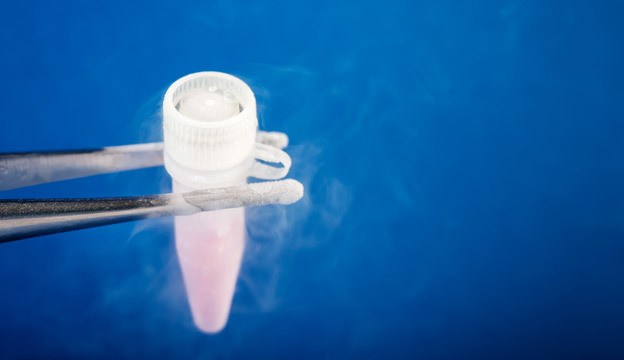There are many reasons to use a cryobank to freeze and store sperm for future personal use. These include:
- An upcoming military deployment. In 2016, the Pentagon created a pilot program that pays troops to have their sperm or eggs frozen for later use.
- You’re considering a vasectomy. Storing sperm can serve as a backup plan in case you change your mind about wanting to start a family. Also, while vasectomy reversal is possible, the procedure includes some significant risks and may reduce your chance of getting your partner pregnant.
- You’re not ready to have kids yet but want to start a family in the future. Storing sperm affords you the time and opportunity to conceive when it’s right for you.
- You are undergoing chemotherapy. Since it’s often the cancer treatment, rather than the cancer itself, that can affect male fertility, men may want to store healthy sperm as a contingency. Though sperm production usually returns after chemotherapy, storage can provide valuable peace of mind while you’re going through treatment.
Directed/Known Donors and Personal Storage
Seattle Sperm Bank provides personal storage services, as well as the collection of sperm, for both directed donors and known donors.
A directed donor is an individual who stores sperm for a chosen recipient who is not his spouse or sexually intimate partner, and intends to observe the FDA recommended 6-month quarantine of specimens. A known donor is a directed donor whose recipient has chosen to waive the recommended six-month quarantine of the donor’s semen samples. Individuals who wish to do personal storage of donor sperm will need to go through the same processes, screenings, and testing that known donors complete.
How Donor Sperm is Frozen
Once sperm is collected, samples are processed and concentrated into small batches and placed into vials to be frozen. At this point, a compound made of glycerol is added to help with the freezing process. This additive prevents crystallized water from damaging the sperm cell membrane during freezing.
Next, the vials are gradually cooled using liquid nitrogen vapor until they reach about -175 degrees Celsius. Vials are later moved into liquid nitrogen tanks for long-term storage at -196 degrees Celsius. At these extremely low temperatures, metabolic activity stops and sperm goes into suspended animation. While frozen, sperm does not degrade or age and is immune to attacks from microbes or bacteria. Theoretically, sperm samples can be frozen indefinitely in this state. It’s important to note that frozen sperm poses no additional risks to women trying to conceive as compared with fresh sperm.
Choosing a Cryobank
If you’re ready to start looking for a cryobank, learn more about choosing the right clinic or contact us to speak directly with one of our helpful client services coordinators at 206-588-1484 or info@seattlespermbank.com.


